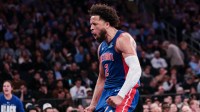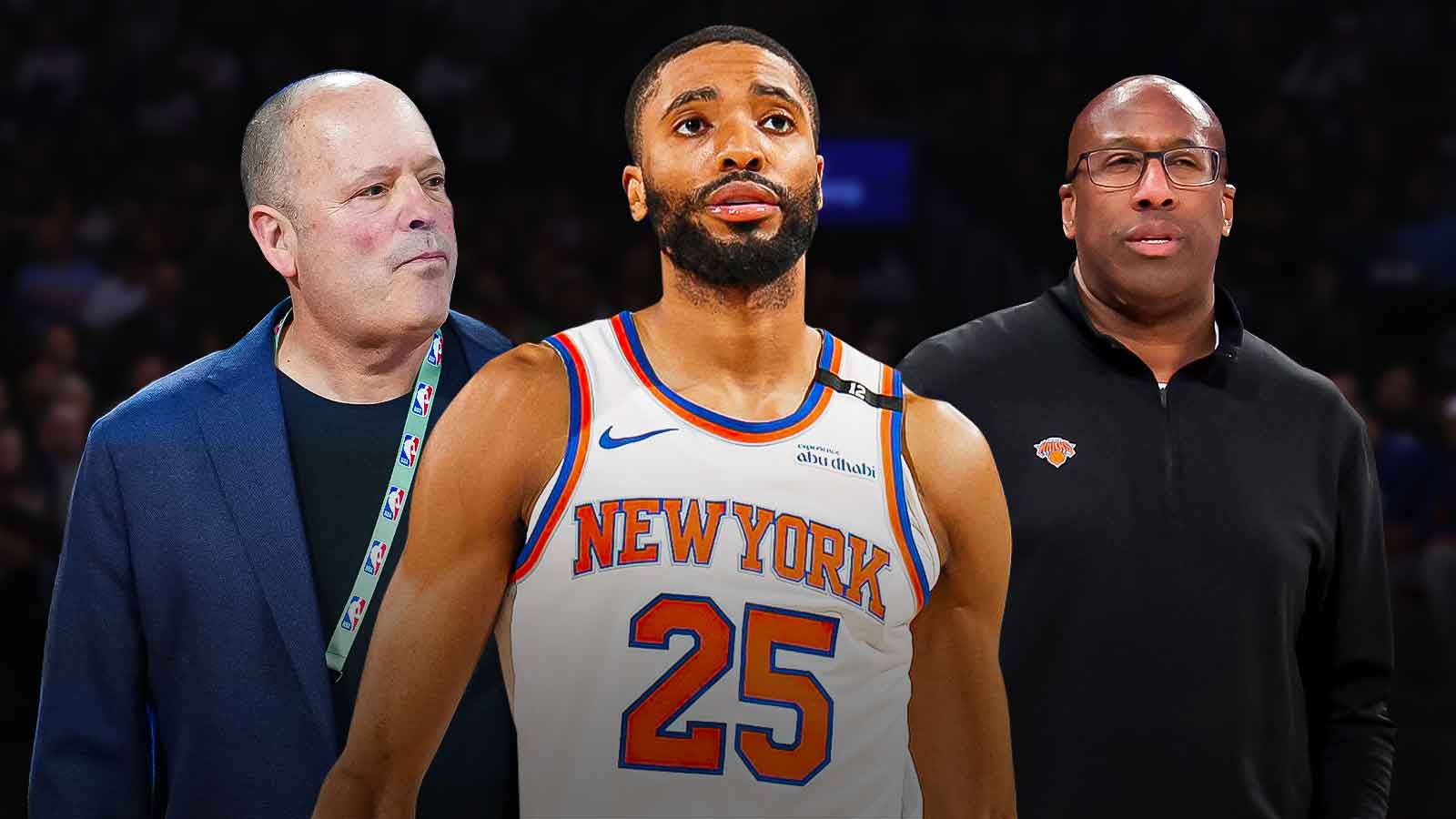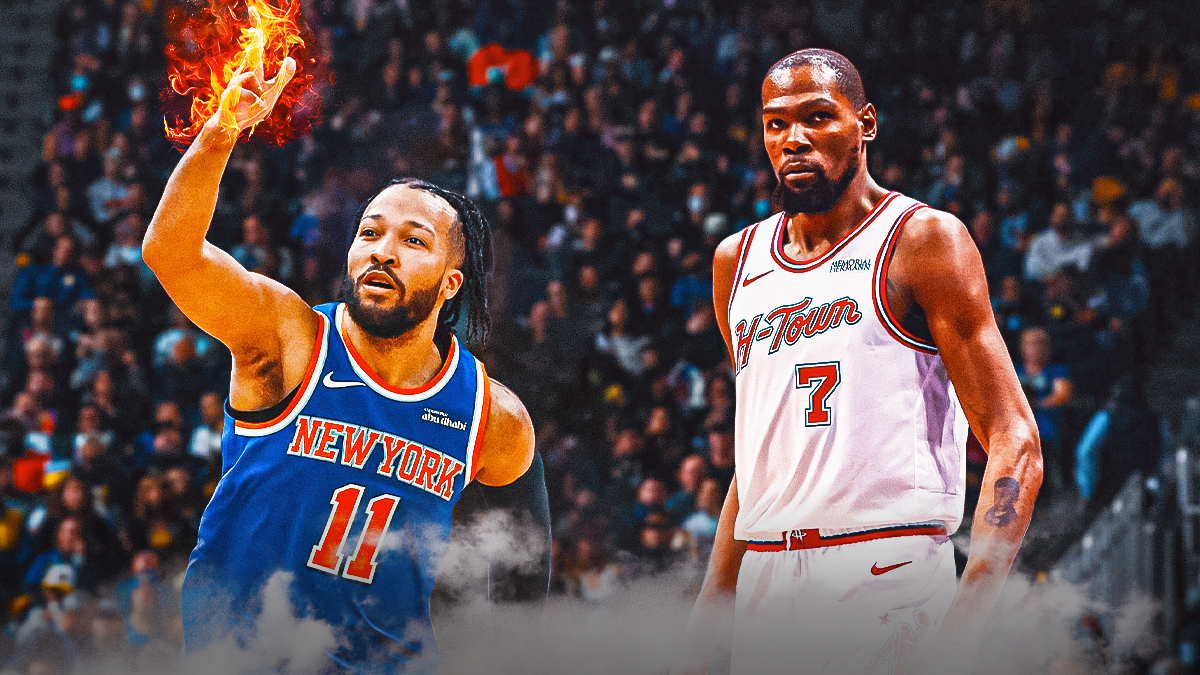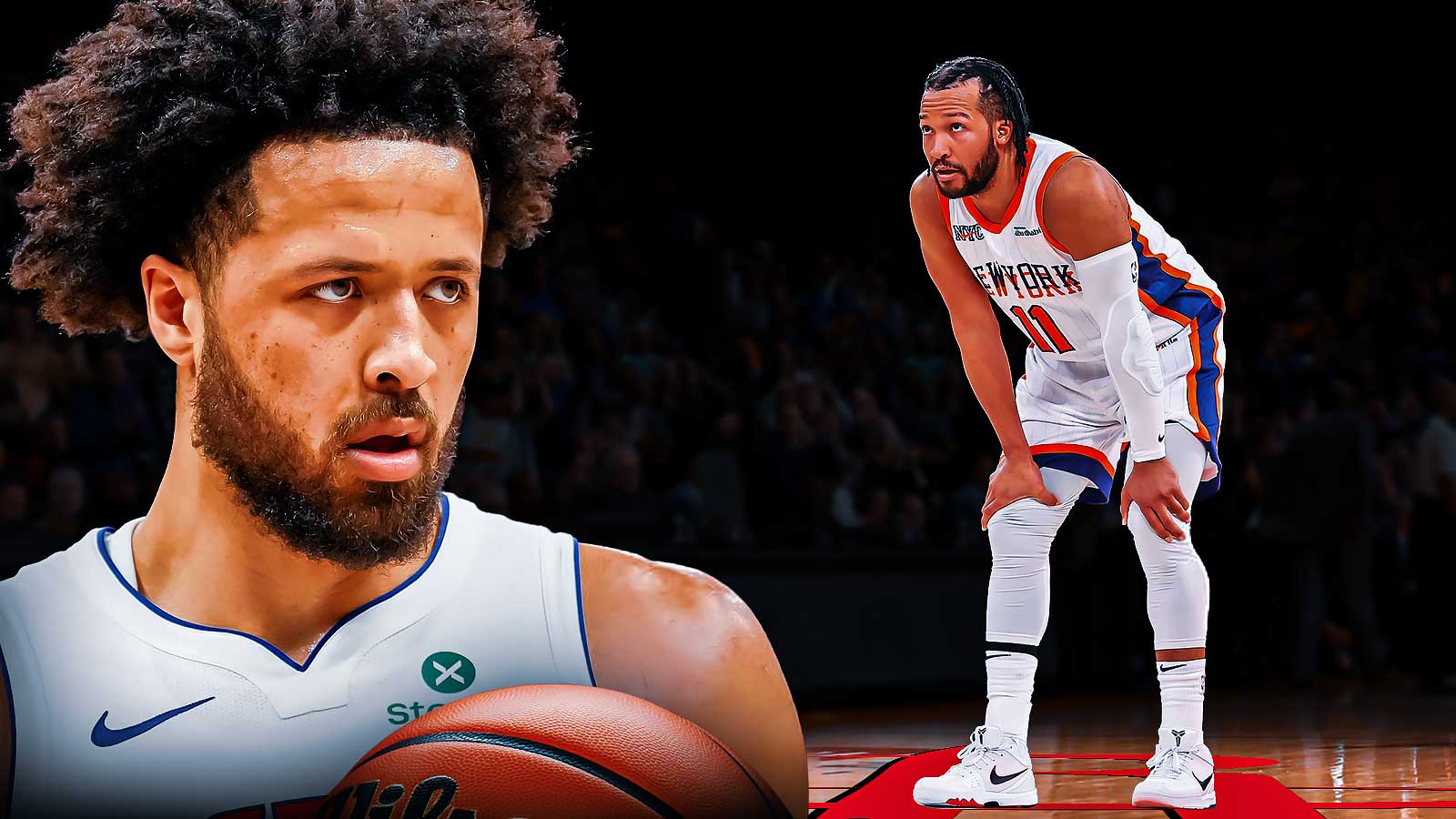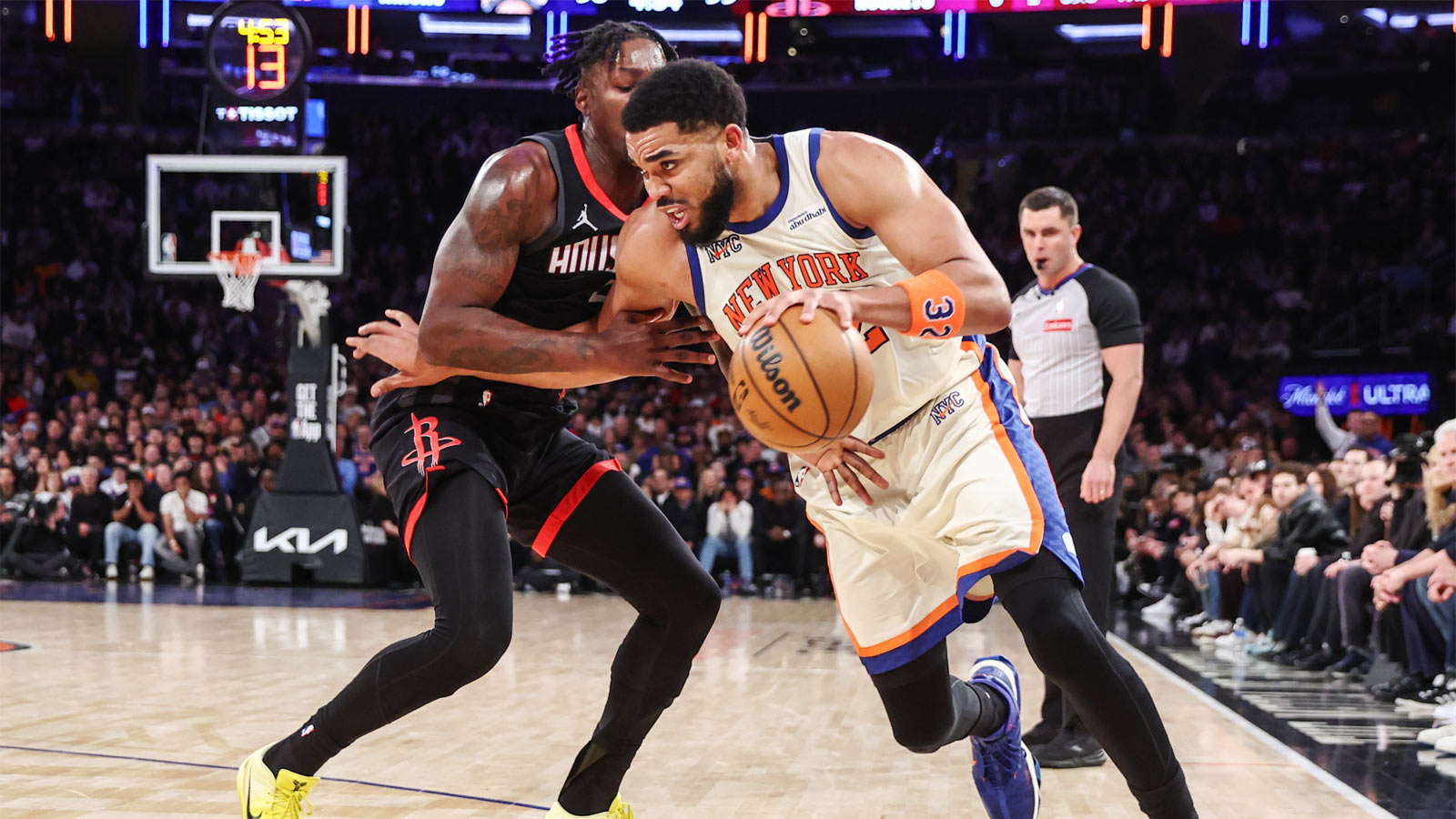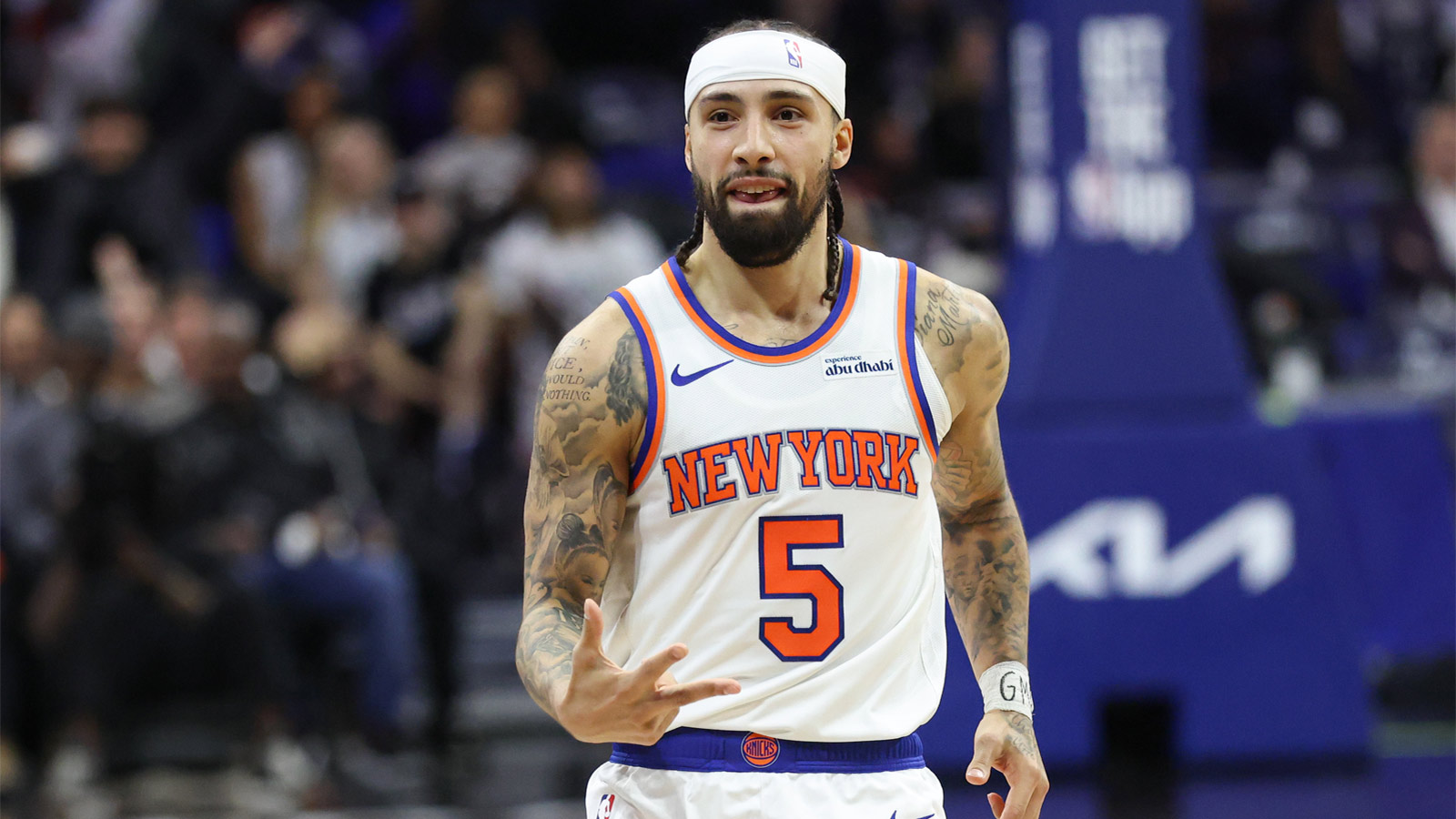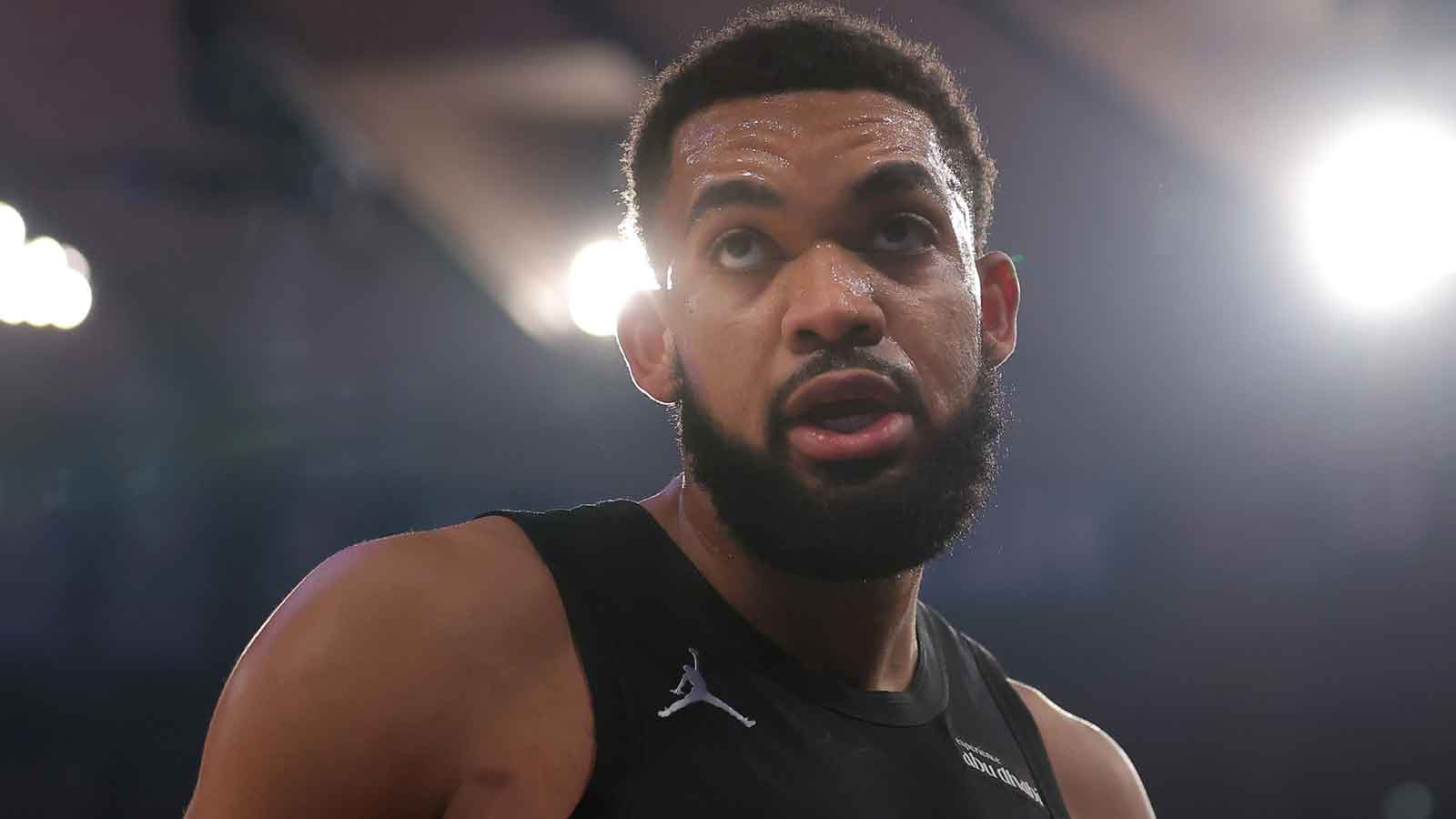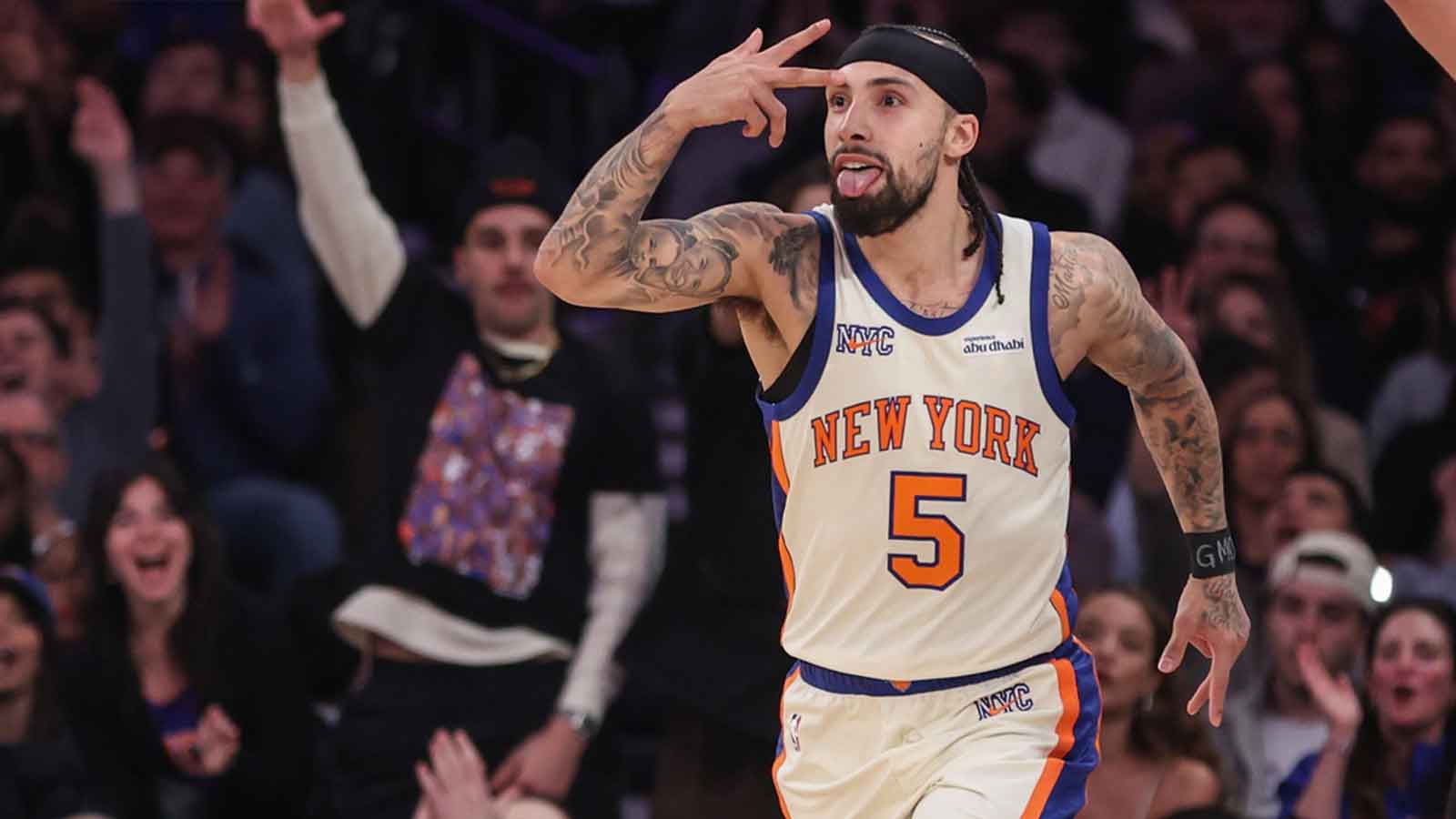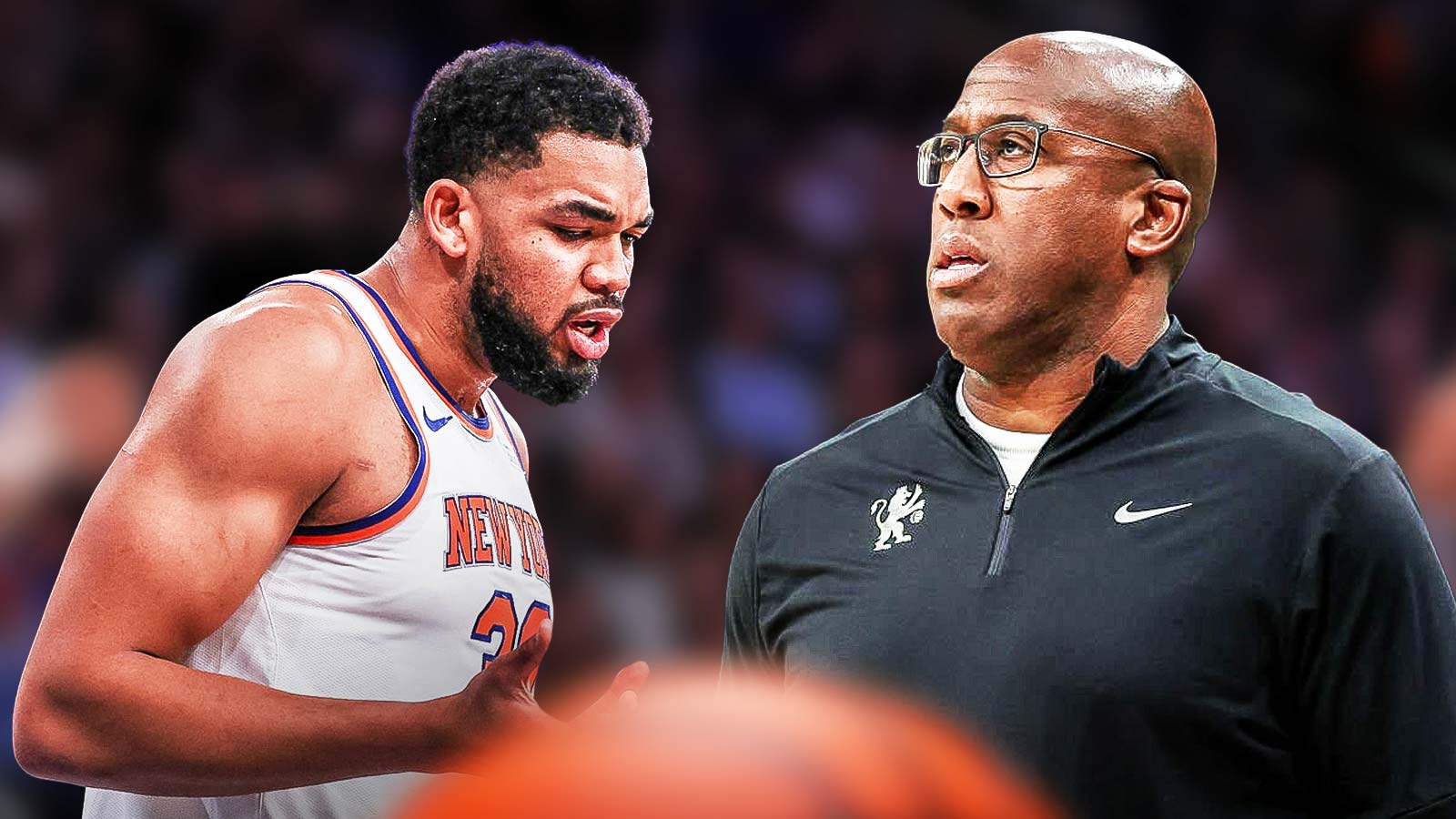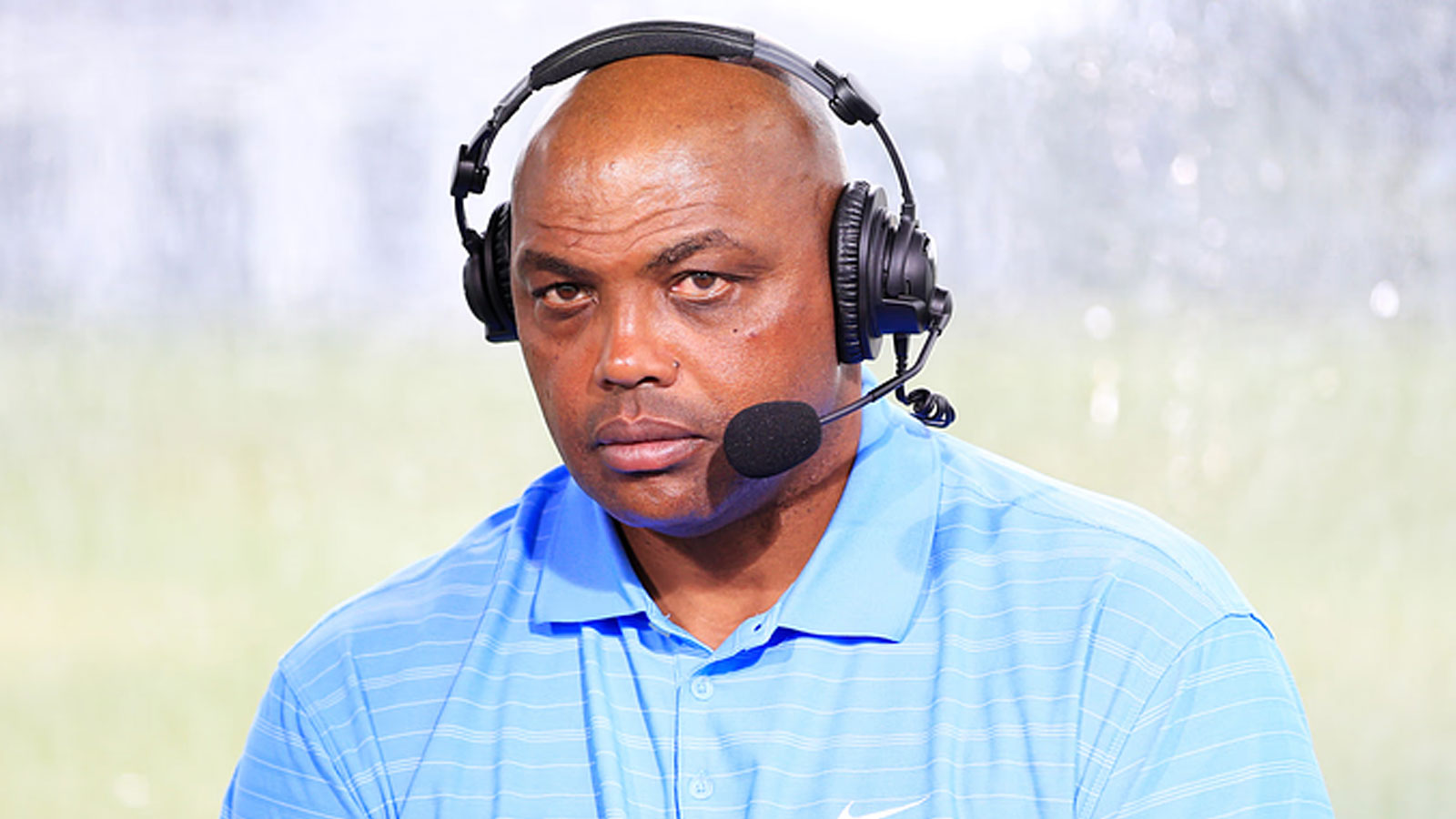The New York Knicks' front office continues its strong run. It recently fleshed out its roster with veteran depth, re-signing Landry Shamet and adding Malcolm Brogdon. These moves add to an already-strong offseason, making the team's positive outlook for 2025-26 even more credible.
While neither deal is guaranteed, the idea of bringing Shamet back—whose contributions were valuable in the 2025 NBA Playoffs—and adding Brogdon to the team's rotation is enticing. However, there is one major issue. New York's backcourt already appears to have a logjam. There is one way to remedy the problem, though. The Knicks can trade Miles McBride.
Knicks' depth presents minor dilemma
First of all, let's identify why too much depth is a problem. New York will technically enter training camp with 12 guaranteed salaries adding up to approximately $205.4 million. The second apron is set at $207.8 million. And the team is interested in keeping Brogdon or Shamet—or possibly both.
Keeping both becomes tough. Despite Brogdon's salary being $3.3 million, a loophole in the collective bargaining agreement means it counts for only $2.3 million (if it is truly a minimum deal). Similarly, Shamet's $3 million deal would also only count for $2.3 million. In other words, keeping both inflates its overarching number to about $210 million, or about $2 million more than the second apron.
Without any (seemingly impossible) salary cap magic, New York cannot add Shamet and Brogdon without trading away someone they value. And the Knicks have to look in the mirror and decide if they want to maximize its title window now or not. If they do, they'll have to move someone whose role is replaceable.
Tyler Kolek probably has enough buzz for a swap for a future second-round pick. But his contract isn't quite enough. The Knicks could trade Kolek and Ariel Huckporti—whose contract is also too little on its own. But Huckporti could end up with a bigger role sooner than expected depending on what happened with Mitchell Robinson's free agency next offseason. And New York can't risk losing Robinson without keeping a backup plan.
Why is a Knicks Miles McBride trade the solution?
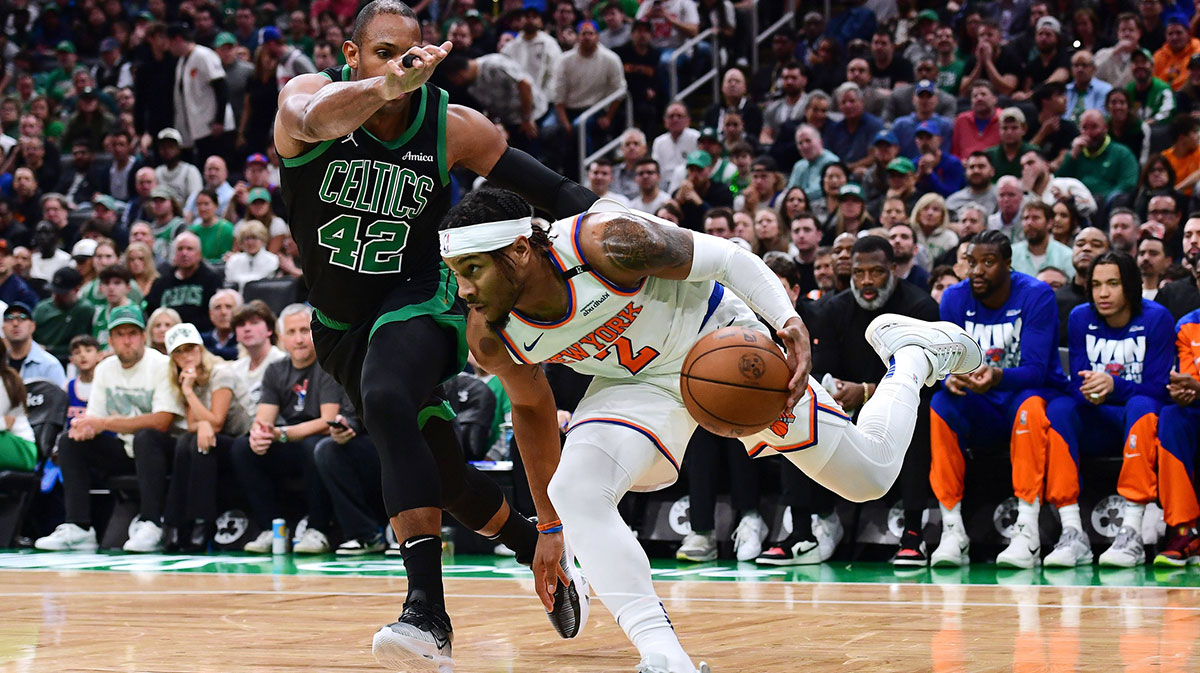
That leaves the Knicks with only two realistic options. The seemingly more logical one is to trade Pacome Dadiet. He hasn't played meaningful minutes for the team. And his $2.85 million salary would probably be just enough to get New York back under the second apron.
Dadiet is just 20 years old and McBride is already 25. While keeping Dadiet for his youth alone is counterintuitive if competing is the primary goal, there are other reasons he's the less desirable trade piece. First, he represents the team's only wing depth on its bench.
More importantly, though, Dadiet's salary is just $2.85 million this season and remains under team control through (at least) the 2027-28 season. Conversely, McBride's contract is $4.33 million. While he can renegotiate a new deal with the Knicks after the 2025-26 season for 140% of his salary, (according to the New York Post's Stefan Bondy), which would start at approximately $6 million in year one, he is likely to command significantly more on the open market.
New York will own McBride's full bird rights in 2027. So they can technically match any offers he receives then, unlike the Isaiah Hartenstein fiasco. But will they want to pay more than $10 million annually plus luxury tax penalties for a role player?
Furthermore, the Knicks could have enough guards without McBride. While the four-year veteran plays his role to perfection, he will inevitably share minutes with Jordan Clarkson and whomever remains between Shamet and Brogdon. But if the Knicks move McBride, they could keep Shamet and Brogdon. Fortunately, both veterans' deals enable the team to take its time, examining all options in training camp.
The Knicks have the luxury of vetting all options and do not have to make a quick decision. New York can possibly consider keeping McBride and Shamet or Brogdon, depending on other roster decisions.
Or they can decide to go with Shamet and Brogdon, swapping McBride for future draft capital—something the Knicks could use more of given how many first-round picks they traded away to acquire Mikal Bridges last summer. Unfortunately, they can't keep all three. And moving on from the former West Virginia Mountaineer could be the franchise's best path to its first title in 53 years.






